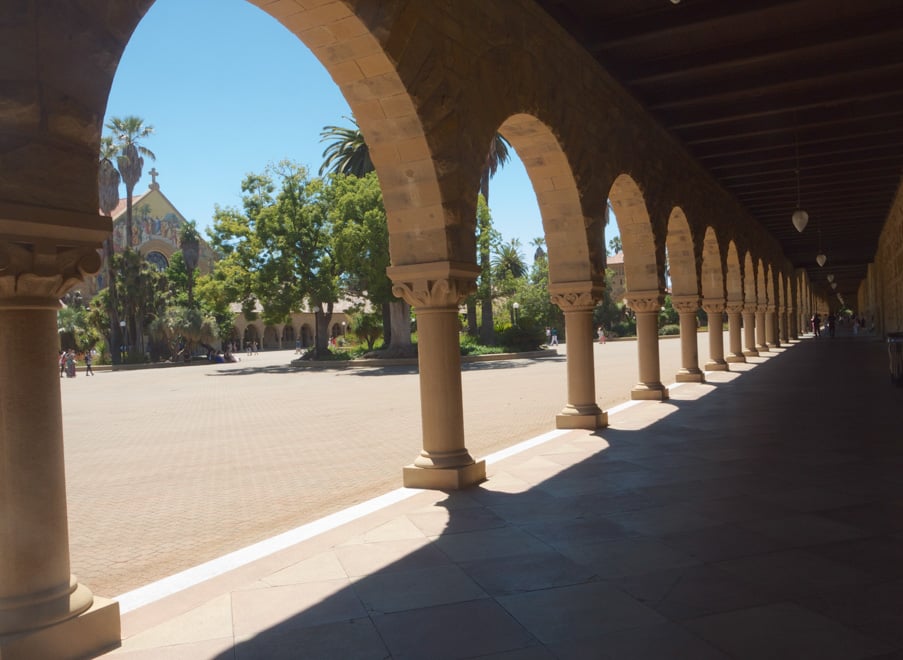If saying “social science” gets me an odd look, saying “humanities” is like swearing. On this campus, I don’t love talking about my major prospects. I am planning on studying a combination of political science and English, but bringing that up rarely leads to pleasant conversations.
I’ve spent too many nights sitting in my dorm lounge, hearing STEM majors talk about how humanities students aren’t smart: “Anyone can write an essay, but look at my math p-set,” “All they have to do is read,” “How are they going to get a job?” and often, “Well, they have way fewer units than we do.”
The last comment is hard to argue with. If I were to major in political science and minor in English, I would still have fewer requirements than someone majoring in chemical engineering. But, what does that say about my choice of study? Am I taking an easy way out?
The Future of the Major proposal, which would somewhat standardize majors, may help address some of the stigma surrounding non-STEM, lighter-unit majors. If implemented, all majors require between 60 and 95 units, and there would be protocols for reporting majors where the number of units fails to match the actual workload.
If students took a course that was labeled as 3 units but felt more like 5 units, they would be able to file an official report with the university. Departments that were found to have lots of under unit-ed classes would face repercussions. While I think this is certainly a feasible solution, I understand why some students are wary. First of all, the responsibility of reporting falls all on the students, which doesn’t seem particularly fair. Why should students have to police the departments? Also, departments that are known for under unit-ing, like the mathematics department, have yet to be stopped. How can this new policy realistically promise to change that?
I completely understand the concern on this issue, and I do see how this reporting solution isn’t perfect. However, for now, I give the University the benefit of the doubt. The fact that under-unit-ing is being flagged as an issue in the first place seems to indicate that addressing this problem is somewhat of a priority.
Assuming the unit standardization is implemented as intended, the Future of the Major proposal would give all students the opportunity to have a true liberal arts education, including the chance to explore major options, study abroad or take non-major courses. While I agree with all of these points, I feel that, as a non-STEM student, the greatest impact of the proposal would be as an equalizer.
While I don’t expect standardized unit counts to erase all of the superiority complex STEM students have in relation to humanities and social science students, I believe it could be a big step; it’s much harder to look down on departments that have similar unit counts to your own major.
Some say that this standardization isn’t even possible. How are we supposed to squeeze 130-unit majors into 95 units? We aren’t. That wouldn’t be feasible. Instead, STEM departments would have to follow the path of the humanities.
Take feminist and gender studies (FEMGEN). At Stanford, to major as an undergraduate in FEMGEN, you only have to complete 63 units in the major. That doesn’t mean that FEMGEN only offers 63 units worth of course work; instead, it means that the department offers students great flexibility in their major plan. Students can look at the long list of courses in the department and choose to take only what is meaningful to their interests and career plans.
In short, the real change in the STEM departments would not come from squeezing units down, but instead from becoming more flexible. High-unit majors would have to be more particular about what is absolutely crucial to their core and then decide where they could give more freedom of exploration to their students.
Isn’t that what Stanford is supposed to be about? When he founded the University, Leland Stanford wrote, “The imagination needs to be cultivated and developed to assure success in life.” Stanford is founded on the imagination, but where is the imagination in complicated, mandatory cores?
The Future of the Major proposal would give students more freedom, while picking away at the superiority trope that labels humanities and social science majors as “dumb.” Our interests should not be validated only by the units required to pursue them. They should be validated by our individual desires and hunger to explore and discover in our fields. All majors should be equal, provided that students are satisfying their imaginations.
Contact Kirsten Mettler at kmettler ‘at’ stanford.edu.
